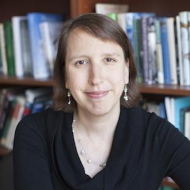Not every educator experiences pushback when teaching about climate change. When it does happen, though, it can be surprising, particularly for someone who has been teaching for many years. Jana Dean is a middle school science teacher in Olympia, Washington. She has been teaching for over 20 years, but that doesn’t mean that new challenges never arise in her classroom. Recently she wrote a piece for the magazine Rethinking Schools entitled “Carbon Matters: Middle school students get carbon cycle literate.”
This wasn’t just another article on the carbon cycle. Rather, it was a detailed story of how challenges from a parent and student about her teaching about climate change led her to focus more directly on the science. By addressing the carbon cycle first, and making the connections to climate change as a larger concept later, she was able to avoid pushback from a student and his parent, and help the student learn about this critically important topic. Jana sat down with me recently to discuss the article and what made her rethink her teaching on climate change.
In your article, you talk about not using the term "climate change" to avoid pushback in your class, and instead focusing on the science. You seemed uncomfortable with this in the article, but in retrospect do you think this is a better method?
I think that it actually was a good idea in terms of kids coming to an understanding of the carbon cycle, because it allowed them to understand the science better. Many of the students were ready to take some action on climate change, but they didn’t really know enough about it or why they were doing it. By shifting from talking about climate change to the carbon cycle, they learned more science and then when we came back around to the actions they could take—they knew more about their options.
What is your advice to other teachers dealing with these types of issues?
I didn’t pause at the beginning to find out what kids already knew. If I had devised a pre-survey I would have been better prepared and it would have been less stressful for everyone. It would have prepared me for the pushback from the students too, as I would have known what to expect.
There is another article I wrote in 2007 called “Teaching Global Warming in Truck Country” for Rethinking Schools, where the pushback I received was really coming from the students. This was in a more rural school than where I teach now, and the students really interpreted what I was talking about as an affront to their lifestyle. As I was teaching about global warming, kids were saying, “What do you mean, I can’t drive my truck?” In that case though, I did a survey in advance, and knew how to be prepared. To not teach about climate change is absurd—you just need to be prepared. That is probably the best advice I can give.
The majority of the pushback you wrote about was coming from one student and his parent, in particular. This is stressful for everyone involved, but can be particularly hard on the student if he feels like he is in the middle of a conflict. By changing your approach, do you feel like you were able to get through to him better?
It is not my job to get between kids and their families. I also really believe that if I what I’m doing and how I’m teaching is not working for one child, I have to change what I’m doing. Due to his father’s perspective, this student wasn’t able to participate. By shifting my strategy, I was able to allow him to be included in the science. By taking this approach, I think he learned more science because of it.

